It happened in 1996. Atre, who along with his father managed a label printing business, made their entry into production of self-adhesive labels in roll form. The company invested in a Kopack seven-inch five-colour CI letterpress. "I was committed to serving my customers with timely deliveries," he says. In that pursuit, Atre needed a different magnetic cylinder for a particular job. The supplier quoted him a price that was high and Sanjeev was not comfortable with it. "I made repeated requests for a lower price, but the supplier knew my predicament and did not relent. That's when I decided to manufacture a magnetic cylinder."
That same year, Atre started to work on the project and made his and India's first indigenously manufactured magnetic cylinder. "It was a proud moment for me. I installed the magnetic cylinder on the Kopack, and it worked excellently," he says.
The Kopack was sold in 2005, but Atre says, "The magnetic cylinder must still be working well on that machine, wherever it must be working now."
From a job to the printing
Atre belongs to a typical Marathi family from Pune. His father's job required him to move from Pune to Aurangabad. Though he had no experience in running a business, Atre's father left his job in 1964 and tried his hands at book-binding.
In those days, people were using treadle letterpresses to print letterheads, bill books, posters, etc. and for printing variable information they would use lead typefaces that were set or assembled as a block which would finally be used for printing. "My father moved on and started a type foundry to produce typefaces. This was my family's first tryst with the printing industry. Integrating forward, he bought a treadle press to start printing as well." The firm was named Print Aids.
In the meanwhile, Atre completed his BSc in Physics in 1976 and took up a job. Two months into the job, he quit and joined his father's printing business. "My elder brother, Bhalchandra, preferred a job in the bank to working in the printing press," says Atre.
In 1980, Atre wanted to invest in a small offset printing press but raising funds for the investment was a concern. "My father was worried about how we would raise the funds," says Atre, adding, "We approached for a loan from NSIC (National Small Industries Corporation) and since I was very active in the printers' association, friends helped me raise the Rs 10,000 margin money."
Atre acquired his company's first small offset printing press, a single-colour 15x15-inch Swift. To begin with, the company did some small odd jobs from Brooke Bond India, which had a meat exporting unit at Aurangabad. "An opportunity came our way when we received an order for supply of five- to six-lakh labels each month from Brook Bond," says Atre.
Labels were produced in five passes, and the order fulfilled. With this, Atre's firm confirmed its first source of regular label business. By 1986 the father-son duo were ready to invest in their second single-colour press. Five years on, they upgraded by investing in their first multicolour printing machine, a two-colour offset press. It was followed by another one, two years later, and a company title – Mudranika in Aurangabad.
Another development took place. In 1994, Atre's elder brother left his job and together they set up another sheetfed offset printing unit. They named the firm, Prabhakar Print Pack. The brothers invested in a four-colour machine and all allied equipment.
Atre, however, continued to concentrate in the self-adhesive label business.
Changing label segment
Around the mid-nineties, the label industry in India began to evolve and grow. Sensing the future trends, Atre decided to expand into self-adhesive labels in 1996, which led to the development of the first indigenous magnetic cylinder.
In 2004, a 10-inch Mark Andy 2200 flexo label press joined the two offset presses at Mudranika. The Kopack sale in 2005 gave Atre the resources to invest in another Mark Andy 2200, this time a 13-inch press.
But even as Atre was expanding his business in labels, he still wished to replicate his success in manufacturing magnetic cylinders. In 2005, he again indulged to produce magnetic cylinders under his new enterprise Precise Graphics.
In his endeavour, he found a solid support in Manish Desai of Mumbai-based Mudrika Labels. "In those Kopack days, I got a lot of help and advice from Manish. He already had three Kopack presses and he mentored me," says Atre.
It was no surprise to Atre when an excited Manish asked him to produce a magnetic cylinder for Mudrika when Atre expressed his intent of manufacturing them. "Mudrika Labels become Precise's first customer. Even when I offered to supply the cylinder at cost, Manish insisted that I add my margins. Manish's was a true encouragement of the make in India concept," says Atre.
More success, products
The initial success was followed with support from another industry stalwart Vijay Jain of A&A Labels in New Delhi. There was no looking back after that and Precise Graphics started to exhibit their products at domestic and international exhibitions.
The company now has customer across India, MENA region and other countries. "We sell between 750-800 units each year, and we hope to increase our footprints in the growing industry," says Atre.
In 2008, Precise developed and started marketing plate mounters, and in 2012, followed it up by offering rotary die-cutting machines for blank labels. Slitting and intermittent die-cutting machines were next in 2014.
The success of Precise Graphics prompted Atre to rename his company as PGI Technologies – a company which would focus on producing engineering and technology-driven products for the label industry.
In 2015, Atre exited the printing business, leaving it to his elder brother to manage. A year later he launched PGI's first rotary six-colour tower-type flexo printing press. "It was a self-designed press built in our factory with CNC machined parts and not copied from any other press," says Atre. "It was my commitment to the Make-in-India concept."
The machine as displayed at the 2016 Labelexpo India in Greater Noida was running at 60 metres per minute. The press has been further modified to run at 80 metres per minute, and with water-based inks and hot air drying.
At the same Labelexpo, PGI also unveiled a new development – a turret re-winder with die-cutting and rotary slitting for non-stop production of blank labels. "We will be showcasing the final version of this machine at the upcoming Labelexpo India in November 2018.
Meeting challenges
Demonetisation and GST did impact business adversely yet, Atre says, PGI was able to sell eight machines in a year. "I've always met challenges with a renewed resolve of doing better," says Atre, reminiscing a challenging situation in his early days of printing labels and the innovative streak in him to solve the problem.
He says, "Once a customer rejected a whole lot of ten- to twelve-million labels due to over punching. The web was breaking on automatic label dispensing equipment, which caused this. He took back the entire consignment, laminated the liner with BOPP film and returned it to the customer. The shipment was accepted."
The company presently operates out of a factory admeasuring 6,500 sqft with 26 people. An expansion is in progress and they are in process of acquiring a 1.25-acre plot with 18,000 sqft built-up area, enough for the immediate future plans.
PGI continues to upgrade its products, adding new features and automation to them. This year, following a renewing of business strategy to push growth, Atre has consolidated the tooling division. "We have got the entire operations under one roof including gear tooth profile facility as well," he says. "While there is push for increasing the prices in the industry, we have announced a price reduction in tooling, owing to the savings from of this strategic initiative."
As Atre looks to technology with ambitious plans to produce products, he hopes his Made-in-India products will play a key part in the Indian label industry.
Harveer Sahni is the chairman of Weldon Celloplast, and is a regular contributor to the label and packaging magazines. His articles have also been published in PrintWeek India.


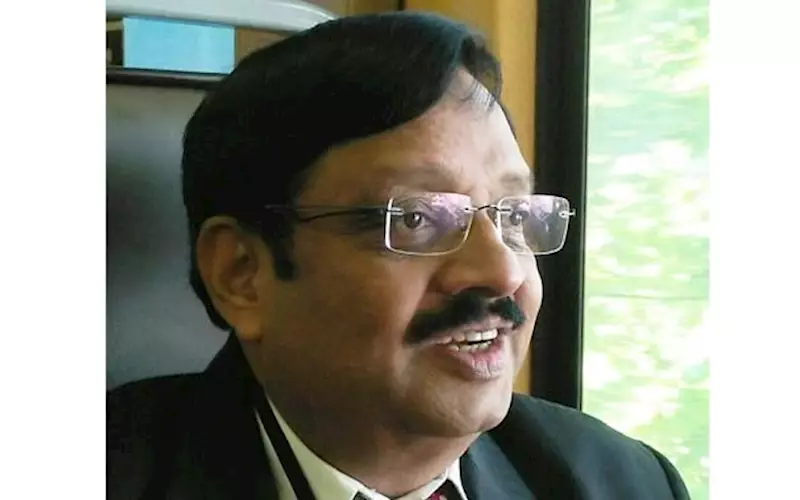
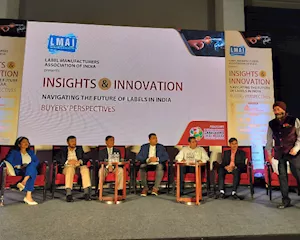
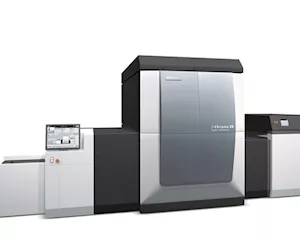
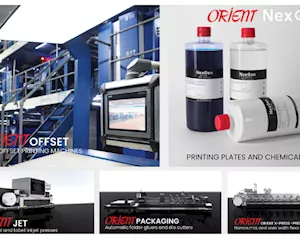
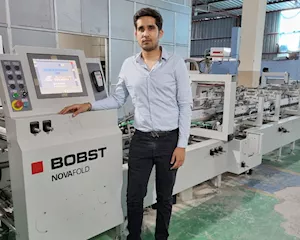
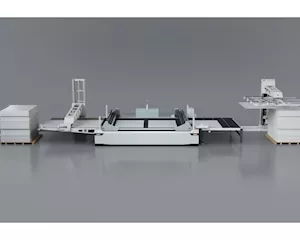






 See All
See All